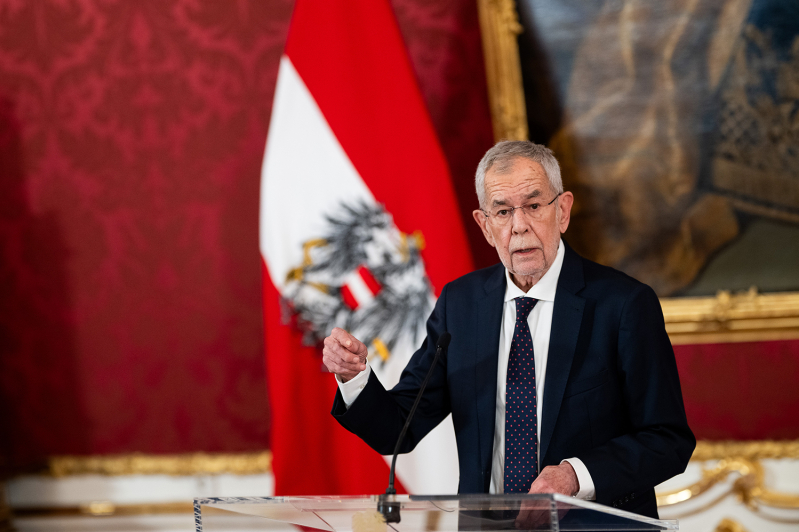
A political stalemate in Austria’s coalition negotiations following last year’s national election reflects, to some extent, the polarization of society, where compromise has been devalued. However, Christians are called to be peacemakers in such socio-political scenarios, according to a group representing evangelicals in the country.
Oliver Stozek, general secretary of the Österreichische Evangelische Allianz (Austria Evangelical Alliance), issued a statement on Tuesday (Feb. 18) addressing the failure of coalition talks since October between the far-right Die Freiheitliche Partei Österreichs (Freedom Party of Austria, FPÖ), the liberal-conservative Austrian People’s Party (ÖVP), and the Sozialdemokratische Partei Österreichs (Social Democratic Party, SPÖ).
Reuters reported yesterday (Feb. 20) that the FPÖ may be excluded from a power-sharing arrangement, with the other two centrist parties likely reaching a deal to form a new coalition government.
Last October, Christian Daily International reported that the FPÖ won the largest vote share in the Sept. 29, 2024, general election, becoming the first far-right party since World War II to achieve such a result. The FPÖ secured 29% of votes for the 183-member National Council, just ahead of the ÖVP with 26% and the Social Democrats with 21%. With no clear overall winner, coalition negotiations became necessary.
In his statement, Stozek referenced a recent speech by Federal President Alexander Van der Bellen (Feb. 12), in which he identified the unwillingness to compromise as the key reason for the breakdown in coalition talks.
The president noted that the three main parties “tried to find common ground” but ultimately failed. He attempted to persuade FPÖ leader Herbert Kickl to form a government, but the FPÖ and ÖVP could not reach an agreement, and Kickl refused to form an alliance with the SPÖ.
“And that is why Mr. Kickl has resigned from the task of forming a government today,” Van der Bellen said.
“The fact that the negotiations have failed may be unpleasant for some, but for the state as a whole, and this is important for me to emphasize, it is no cause for alarm. We are still operating within the well-ordered framework of the Austrian Federal Constitution. We have a federal government. And we will have a federal government.”
However, Van der Bellen acknowledged the complexities of finding a resolution to the political impasse.
“On the one hand, there is no clearly dominant force in terms of parliamentary mandates, with only a few percentage points separating the larger parties.
“And there is less willingness to reach agreements. It is more difficult to reach compromises. And that, in my view, is the real problem: compromise has fallen into disrepute.
“At some point, the belief took hold that compromise is something for losers. But ‘compromise’ is simply another word for a joint solution. Because if everyone just clings to their own position, there is no solution.
“The political landscape is becoming more polarized, and people from different parties are becoming increasingly irreconcilable instead of working together to find solutions.”
Reaching agreement is not easy, the president added, but it requires recognizing that the perspectives of others are equally valuable.
Van der Bellen described compromise as a “national treasure,” stating, “If everyone believes that he speaks for everyone, there is a lack of humility in recognizing the opinion and perspective of others. This attitude was evident throughout these negotiations.”
Stozek echoed the president’s concerns about the erosion of compromise and the growing polarization in Austrian society.
“At the moment, it remains completely uncertain what kind of government Austria will have in the future,” Stozek said. “But we can see that this issue has already led to the failure of coalition talks between the ÖVP, SPÖ, and NEOS [New Austria and Liberal Forum].
“Clearly, in both rounds of negotiations, some politicians were unable to transition out of campaign mode, think beyond their ideological frameworks, and search for solutions for the country—solutions they might not have originally proposed but could still support.
“In both cases, individuals made maximalist demands that were impossible for others to accept.”
Stozek argued that this political deadlock mirrors broader trends in society, where Austrians are experiencing “ever-increasing polarization” and taking rigid, uncompromising positions.
“The broad middle ground feels increasingly voiceless and pressured to align with one of the two extremes,” Stozek said.
“At the same time, these polarized positions offer the appeal of simple answers in an increasingly complex world. Viewpoints and facts that do not fit one’s own worldview are dismissed.”
Amidst this socio-political tension, Stozek emphasized that Christians are called to demonstrate unity and serve as peacemakers.
“Jesus set an example for us—people can and should be accepted, even if we believe they are wrong. This is the response that can counteract society’s polarization.”
Stozek also reassured Austrians that, despite the current transitional government, there is no immediate risk of “sliding into a national crisis or ungovernability.” However, the country needs strong leadership to address pressing issues.
“It is rather unlikely that an expert or transitional government will provide the necessary impetus,” he said. “Given that new elections would likely result in a similar political composition, I don’t believe that would be the best solution for the country.
“And so, once again, I encourage us to pray that God will grant us good governance.”





